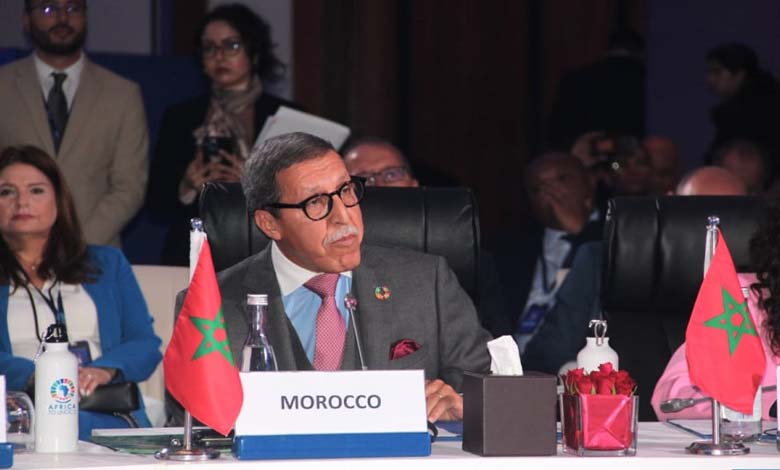New Diplomatic Achievement for Morocco with Its Election as Vice-President of the Conference on Landlocked Developing Countries

Morocco, represented by Ambassador Omar Hilale, has been elected Vice-President of the Third United Nations Conference on Landlocked Developing Countries, held Tuesday in Awaza, Turkmenistan. This represents a major diplomatic milestone that reflects the Kingdom’s rising status and its leadership role both in Africa and on the international stage.
-
Widespread Rejection of Misrepresentations in UN Security Council Report on the Moroccan Sahara
-
Morocco: The Most Qualified to Represent Africa at the Security Council
The election was announced during a plenary session gathering all participating delegations of the conference, which runs from August 5 to 8. Through this position, Morocco joins the African countries represented in this high-level event, thereby reinforcing its role and voice in shaping global development policies.
Far from being a mere formal recognition, this new international achievement highlights Morocco’s ongoing commitment to international development issues, under the wise leadership of King Mohammed VI. Ambassador Hilale’s election affirms the global community’s recognition of Morocco’s diplomatic efforts and solidifies its image as a reliable partner advocating for the interests of the Global South.
-
Portuguese support for Morocco’s Sahara plan strengthens the Kingdom’s position
-
After Morocco’s Protest: Sky News Arabia fires its Washington-based Algerian correspondent Reda Bouchefra
In a statement to the Moroccan press agency MAP, Hilale expressed that Morocco’s role had been acknowledged through his appointment, allowing the country to take a more active part in discussions and side events. He emphasized the significance of this conference, particularly since it had been postponed twice, and noted that landlocked developing countries (LLDCs) account for 9% of the world’s population and one-sixth of UN member states—an indicator of their relevance in global affairs.
The event serves as a platform to address the challenges these countries face, especially isolation, lack of trade access, and high import/export costs. It is expected to result in a political declaration of solidarity and a concrete action plan to enhance resilience, facilitate trade, attract investment, and develop transport and connectivity infrastructure.
-
Royal Attention Elevates Morocco’s Military to an Advanced Global Ranking
-
The Royal Momentum of the King of Morocco Leads to a New Achievement: Ghana Freezes its Recognition of the Polisario
Hilale also highlighted King Mohammed VI’s strategic vision to support landlocked countries, particularly through two major initiatives: the Atlantic Initiative to ensure access to the ocean for Sahel countries, and the plan to break their isolation—a flagship project aligned with South-South cooperation in favor of development and inclusion.
Morocco is also scheduled to participate in three side events during the conference, where it will showcase its efforts, the King’s long-term strategy, and its contributions to the broader framework of the 2030 Agenda for Sustainable Development, particularly across the African continent.
-
Morocco’s Strong Position Pushes Algeria to Avoid Raising the Sahara Issue at the UN Security Council
-
Morocco Strengthens Broader Military Cooperation with Gulf States
The ambassador underlined the dual challenge facing these countries: underdevelopment, as most are still classified as developing nations, and limited access to transportation and trade routes, which raises the cost of economic activities and hinders their path to progress.
Morocco is represented at this UN conference by a delegation led by Minister of Transport and Logistics Abdelssamad Qaiouh, alongside Ambassador Hilale, Mohamed Rachid Maâninou (Morocco’s envoy to Kazakhstan, Tajikistan, Turkmenistan, and Kyrgyzstan), as well as diplomats and senior officials from the Ministry of Transport and Logistics.
The conference provides an opportunity to reshape development strategies for LLDCs and offers a space for high-level dialogue among global leaders, investors, and institutions on integrating their needs into international policy-making, investment frameworks, and sustainable development planning.












